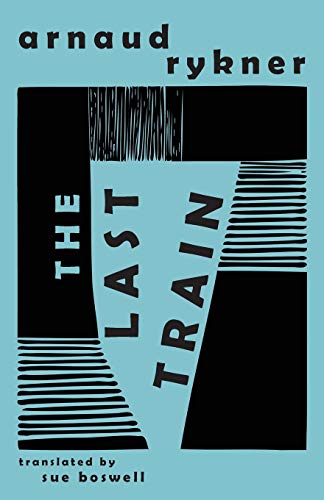The Last Train
On July 2, 1944, French police acting for the Gestapo loaded 2,066 men into freight cars bound for the Dachau concentration camp. The prisoners were Resistance fighters, informers, Jews, and those simply in the wrong place at the wrong time. Jammed together in the blazing heat, without food, water, sanitation, and adequate air, a quarter would die before they reached Dachau. Many who survived the train would perish at Dachau before it was liberated on April 29, 1945.
Arnaud Rykner discovered by chance that a family member was on that train. This short book is his imagined memoir, told with precision, deep heart, and searing intensity. The struggle wasn’t merely physical survival. Desperate men had to take turns for time at the single window. The soul had to endure, the mind and heart, even a fragile sense of humor. Our speaker knows this and we feel his struggle. We cheer with him when, crammed next to a schoolteacher, they use the single fact of knowing how far apart the electric power poles might be to calculate the speed of the train. We ache as the narrator struggles to balance the necessity of hope against the logical improbability of survival.
At 143 pages, The Last Train is a quick read, but it will pierce the reader and stay forever as a testament to the depths of human cruelty and the incredible power of human resistance, the preservation of humanity against all odds. Skillfully translated from French, this imagined memoir is recommended for all, including middle and high school readers.










